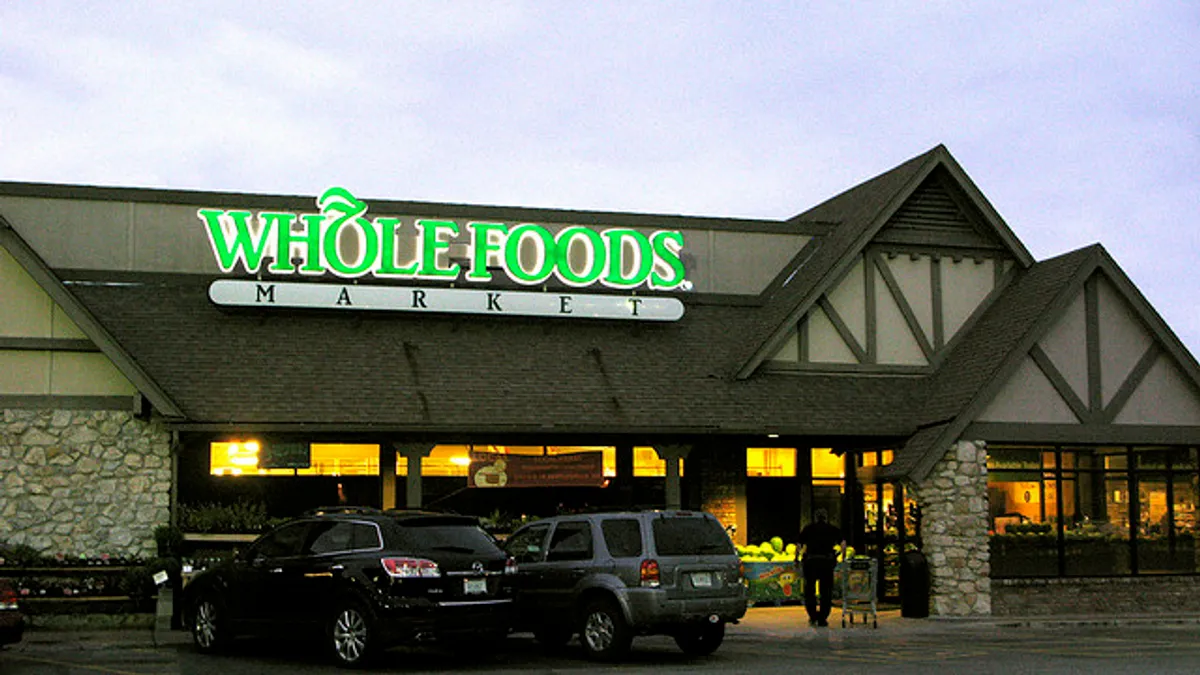Dive Brief:
- Whole Foods announced it will close nine stores following a disappointing first-quarter earnings report, according to Forbes. The company hopes the move will increase cash flow and shift the focus to high-performing stores.
- The nine stores slated for closure, according to Whole Foods CEO John Mackey, are smaller and older than most of the chain’s stores, and some are located close to larger, more profitable stores.
- Whole Foods also announced it will also partner with data firm dunnhumby, which has helped retailers like Kroger improve their merchandising and offer targeted promotions to customers
Dive Insight:
The narrative here is more complex than the retailer closing stores because of poor company performance. In Wednesday’s earnings call, Whole Foods CEO John Mackey said that in addition to closing nine stores, the company will open six new stores in the current quarter. That loss of three stores represents the first reduction in the chain since 2008, when Whole Foods battled recession-era spending from shoppers.
On the one hand, this is a sign of the significant competitive headwinds Whole Foods faces right now. On the other, it shows the natural and organic retailer is focused on operational efficiencies. Most of the nine stores due to close were older locations that were cannibalizing sales from larger stores nearby. Some had leases that were due to expire this year. By trimming the fat, so to speak, Whole Foods can free up cash flow and drive traffic to higher-performing stores.
The closures are also a taste of the company’s plan to slow new store growth. Mackey said Whole Foods no longer anticipates running 1,200 or more stores, a goal it established just over three years ago. Instead, it will focus primarily on improving promotions and data usage in its current stores. The retailer is also going to concentrate on opening new 365 concept stores. The slowdown could take a few years to materialize, as Whole Foods currently has 80 stores in development.
Expect to see a leaner, meaner Whole Foods in the coming years. Along with its more focused store growth, the retailer also plans to hone in on its core customers — “Whole Foodies,” as Mackey referred to them during the conference call. Getting them to build their baskets through targeted offers, better in-store merchandising and other avenues is the company’s growth model going forward.









